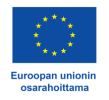The concrete objectives of the project are:
1. Bring the actors together and carry out a survey of the current situation and specify competence needs.
2. To create training content to bring knowledge to the production, synthesis, storage and use of hydrogen, as well as to provide knowledge on the safety of hydrogen processes, equipment and systems related to the previous main phases, and to provide knowledge and support for equipment and system selection and deployment planning.
3. Utilise the latest communication and media practices and tools, such as online study and microcourse techniques, in the production of educational content.
4. Develop the implementation of training in accordance with Objective 2 content using participatory methods, taking into account the special characteristics of the participants flexibly.
5. Carry out practical piloting to ensure the concept and to collect and implement further development needs.
6. Implement and disseminate the results in the implementers' counties and nationally: describe participatory, the company's special needs, e.g. The VETY expert training model, which takes into account the operating environment, is available digitally to all companies and higher education institutions, also utilising regional development communities.
The training concept will be piloted regionally for hydrogen economy SMEs in Pirkanmaa, Lapland and Ostrobothnia.

Goal
The current energy transition is increasing the pressure for change throughout the energy system. Climate targets and fossil fuel risks will drive the uptake of renewables in the coming years. Increasing weather dependence of solar and wind power generation will require the whole energy system to become increasingly resilient. An important part of the energy system of the future will be energy storage in its various forms, allowing energy to be stored during windy or sunny weather for those times when there is less generation. The hydrogen economy of the future is based on the idea that when electricity is cheap, hydrogen is produced and can be stored, used as such or further processed into synthetic fuels. The same fuels can also be used in vehicles such as machinery, thus creating a closed carbon cycle that does not emit more carbon dioxide into the atmosphere. Storing and transporting energy as gas reduces pressure on electricity transmission networks, allows gas networks to be used as energy storage and, if necessary, to convert gas back into electricity at a time of higher prices.
In July 2020, the European Commission proposed a hydrogen strategy for a climate-neutral Europe. The strategy aims to accelerate the development of clean hydrogen and ensure its role as a cornerstone of a climate-neutral energy system by 2050. A strong EU investment in the hydrogen economy will also make it more attractive in Pirkanmaa, Lapland and Ostrobothnia. Finland has the potential to produce a significant share of all the clean hydrogen needed for the EU's RePower plan. The aim is that by 2030, the hydrogen economy will have become a new export pillar for Finland. The Government's 2021 Policy Statement also states that Finland will strive to become a European leader in the hydrogen economy throughout the value chain. As in other emerging technologies, one of the bottlenecks in the hydrogen economy is seen as a shortage of competence. There are also safety issues, for example, that need to be addressed before hydrogen can become widespread.
The main objective of the project is to provide the necessary skills and to better equip workers in regional companies to participate in the design and manufacturing of new green technology plants. The aim is that participants will have a strong understanding of the hydrogen economy and its many potentials. The project will create training content to provide know-how to the production, synthesis, storage and use of hydrogen, knowledge of the safety of hydrogen processes, equipment and systems associated with the above main stages, and knowledge and support in the selection and design of equipment and systems for deployment. The project will develop a HYDROGEN-training concept, which will be piloted in SMEs on a regional basis in Pirkanmaa, Lapland and Ostrobothnia. The project is a joint project of three educational organisations, Tampere University of Applied Sciences, Yrkeshögskolan Novia and Lapland University of Applied Sciences.
Funding source
Contact persons
marko.makilouko [at] tuni.fi
